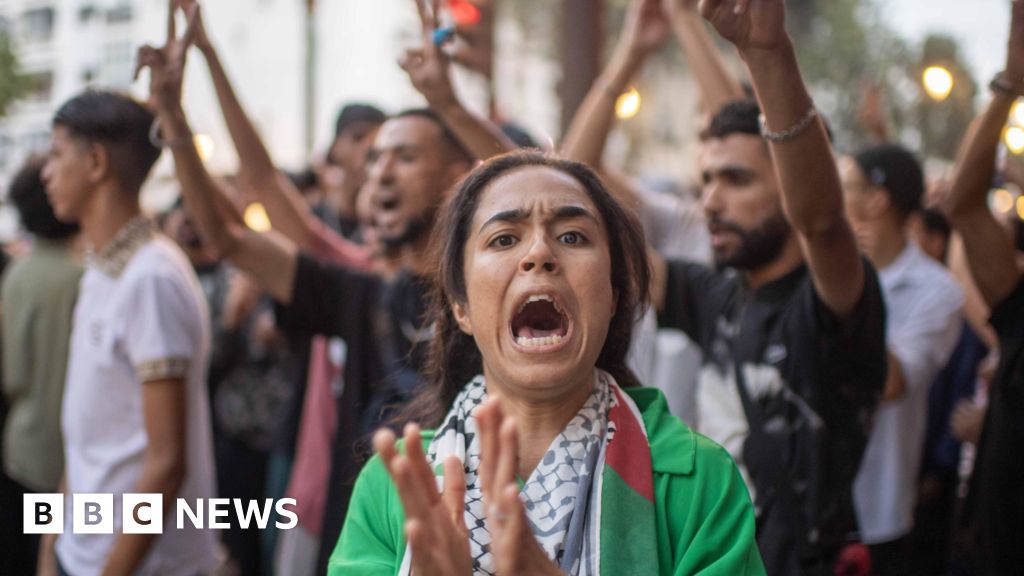By Hajar Chaffag
Copyright bbc

The police response has been heavily criticised by several Moroccan human rights organisations, protesters and the opposition.
The Gen Z 212 protests are not the first time that young Moroccans have taken to the streets.
Many commenters online have been drawing parallels with the country’s violent 1981 riots, where those who died became known as the Bread Martyrs as they were protesting against the soaring price of basic foods. A 2004 commission appointed by the king to investigate the country’s past human rights abuses verified 114 deaths but did not disclose how exactly they died. Reparations were then made to victims of human rights abuses and families of deceased ones.
The country has seen other youth-led movements, notably in 2011 and 2016.
The events of 2011 were part of the larger Arab Spring and led to reform of the constitution through a national referendum called by King Mohamed VI.
For the first time in Moroccan history, the monarch strengthened the role of the government by ceding executive power to the prime minister and parliament. The king remains the legitimate head of state, military and religious affairs, holding the power to appoint and remove ministers if necessary.
What makes Gen Z 212 different is that those demonstrating say they are not tied to a political party and do not appear to have a formal structure.
“We are not a political movement. We have no leader,” Ms Belhassan says.
“Maybe that’s why the police were arresting people, and why the government kept silent – because, in their eyes, we didn’t follow the traditional path of organisations and political parties.”
But there is some disquiet about the violence.
On the night of 1 October, three protesters died in the town of Lqliaa after people attempted to storm a police station. The local authorities said security forces opened fire after protesters tried to start a fire and steal weapons from the station, then subsequently released supporting CCTV footage to disprove emerging false narratives online.
Protesters have condemned the rioting and looting that have happened in certain areas and have organised clean-up groups. They have also repeatedly called for peace and dialogue, but it seems they are not convinced by the prime minister’s apparent willingness to talk.
On Friday, calls began to emerge for the king to dissolve the government. That may be a step too far, but the protesters do not seem to be in the mood to pull back.
Looking ahead to 2030, protester Ms Belhassan says that “of course” Moroccans are “excited to host the World Cup”.
“We love football, it is in our blood. But we are missing the foundations. Sure, let’s build stadiums, but let’s also build our education and health systems. Let’s take care of our people.”